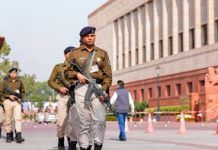In a year’s time, each police station in Maharashtra will be able to record biometric data of criminals. The state government is expected to select a firm soon to supply fingerprint, iris and face scanners. The state government had floated a tender in December 2016 inviting bids to execute the Union Home Ministry’s Automatic Multimodal Biometric Identification System (AMBIS). The project is run by the National Crime Records Bureau (NCRB) at the Centre and the State Crime Records Bureau (SCRB) in individual states. While the NCRB possesses digital records of criminals, AMBIS is currently under execution by state governments. AMBIS will replace the state police’s current practice of manually examining and matching fingerprints to identify criminals on record. Iris scans have proven to be far more accurate than other forms of biometrics.
In Maharashtra, only the France-based multinational Morpho and the Japanese conglomerate NEC passed the strict technical requirements. “A final technical analysis of the two firms’ bids will be made this month. Once a vendor is selected, we expect AMBIS in Maharashtra to be operational in one year,” said a senior home department official. It will be operated by the Maharashtra Criminal Investigation Department (CID).
Under AMBIS, the scanners will be supplied to police stations in each of the state’s 10 police commissionerates and 35 districts. The official said that scanners would be linked to the existing Crime and Criminal Tracking Network and System (CCTNS), a digital system aimed at improving efficiency of policing. One computer terminal at each police station will be dedicated for use of the scanners. While the police will begin recording biometric data of offenders in serious criminal cases, it will also record data of history-sheeters and other criminals on record. In addition, the official said, roughly 5 lakh fingerprints in the state’s records that were recently digitised will be stored into the system.
The biometric data will be stored at each police station and at a central server in Mumbai, said the official. Once the system is operational, the police will not only be able to search for criminals with previous crime records in other villages and districts, Maharashtra will also be able to access the NCRB’s central database of biometric records, making searches for criminals with known records easier.







